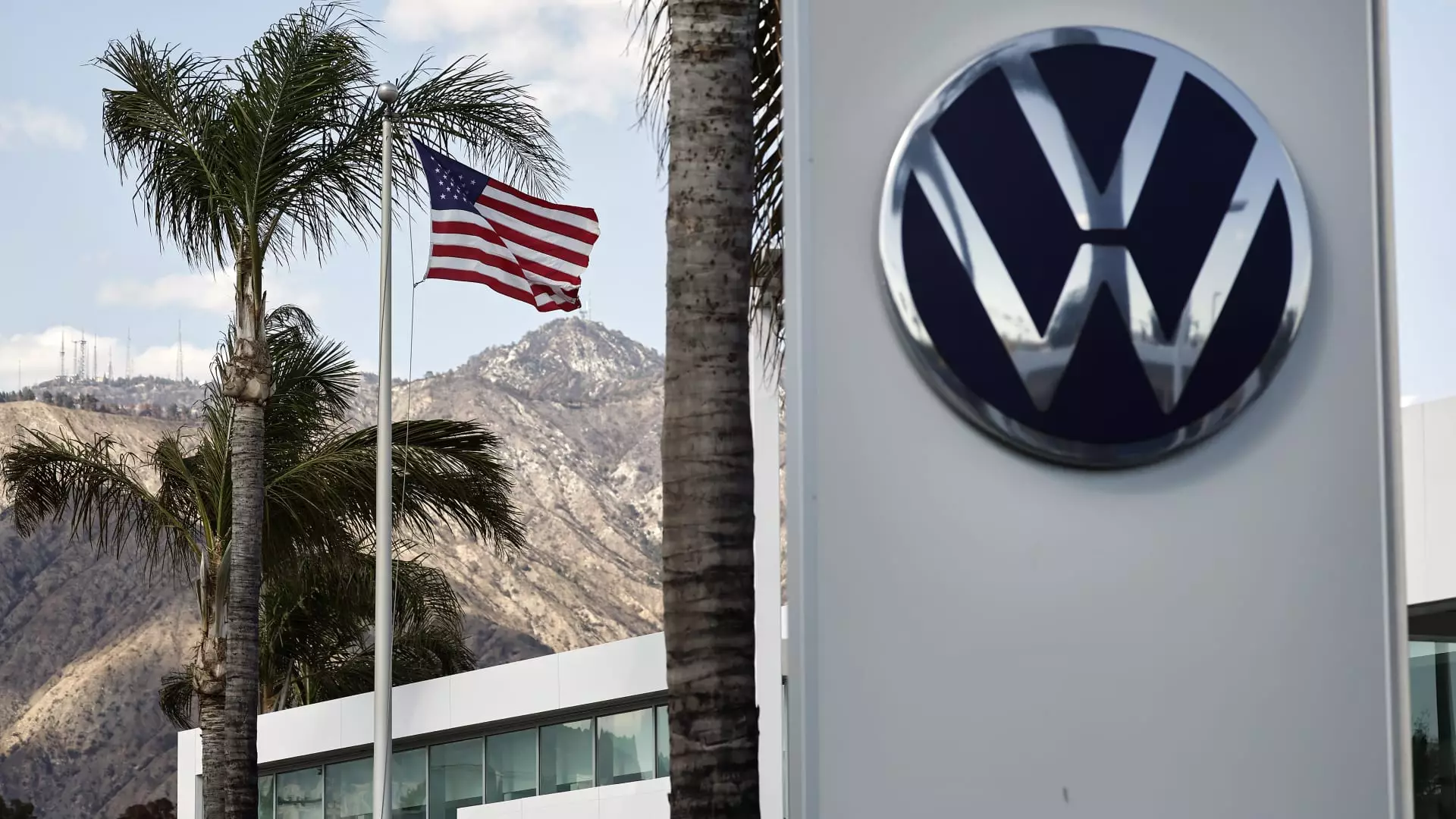Volkswagen, a titan of the auto industry, recently reported a staggering 37% drop in its first-quarter profits, a development that raises serious concerns about the stability of not just the company but the automotive sector at large. The primary culprit? U.S. tariffs that have cast a long shadow over global supply chains. The sweeping trade policies put in place under the Trump administration have proven catastrophic for companies like Volkswagen that rely heavily on a seamless transnational manufacturing process. It’s a grim reality: while vehicle sales elsewhere have propped up the company’s revenue figures to a modest 77.6 billion euros, the larger picture shows a company battling against the tide of expanding tariffs and regulatory hurdles.
The automotive industry is fraught with challenges, and Volkswagen’s current predicament exemplifies the uncertainty wrought by inconsistent trade policies. As tariffs fluctuate with each political decision, automakers face an uphill battle to adapt. While Volkswagen managed a 2.8% increase in revenue year-over-year, the staggering decline in profit signals a brewing storm—one that could potentially derail further investments in innovation and manufacture.
Profitability Under Fire: What Lies Ahead for Volkswagen?
Volkswagen’s CFO Arno Antlitz acknowledged that navigating through the volatility of the global economic landscape is more critical than ever. The company’s profitability, with operating profits recently pegged at a mere 2.9 billion euros, diverges significantly from analyst predictions, which hovered around 4 billion euros. This disconnect between expected and actual profit reflects a troubling tolerance for unpredictability that could harm not only Volkswagen but also its stakeholders who depend on stable financial performance.
Shifting priorities toward an efficient cost base is undoubtedly sensible; however, it raises questions about the long-term sustainability of Volkswagen’s strategy. Will a leaner focus on cost-cutting undermine the company’s largely celebrated product innovation and brand reputation? How much more can a giant like Volkswagen tighten its belt before innovation becomes jeopardized? The executive team’s pivot toward profitability over growth may placate shareholders in the short term but risk alienating consumers who have come to expect groundbreaking designs and cutting-edge technology as hallmarks of the Volkswagen brand.
The Role of Global Markets: A Mixed Bag for Sales
Interestingly, Volkswagen’s vehicle sales in markets outside of China managed to maintain a positive trajectory. In total, the automaker reported 2.1 million vehicle sales, slightly up from the previous year. Additionally, order intakes in Western Europe jumped dramatically by 29%. This success, however, risks being overshadowed by broader uncertainties, especially within the Asia-Pacific region. China’s sluggish recovery poses a dilemma; as the geopolitical environment intensifies, this market will likely become even more critical for sustaining Volkswagen’s global sales, an area the company is desperate to enhance.
The stock market’s reaction to these results was telling—shares dipped by 0.7%, a clear indication that market confidence is faltering. Investors, alarmed by the ongoing unpredictability of automobile tariffs and looming political uncertainties, are signaling a precarious outlook. The potential tariffs on imported vehicles into the U.S. remain a significant concern, as longer-term impacts from such policies could destabilize supply chains and compromise profitability.
Treading Water in Uncharted Waters
Looking forward, Volkswagen anticipates that its operational returns will linger at the lower end of annual forecasts, a grim reflection of reigning political uncertainties and emerging regulations. With a backdrop of ever-mounting trade restrictions and regulatory frameworks, the company’s strategy will require more than tweaks and adjustments; it demands transformative change. Investors and consumers alike should be wary of Volkswagen’s reliance on government policy benevolence, particularly when competitive advantages can vanish overnight.
While many may argue that Volkswagen, as one of the world’s biggest automotive makers, should withstand these turbulent waters, the reality is that in the current political climate, no player is immune. The auto industry must adapt, innovate, and evolve rapidly or risk being swept aside in the chaos of shifting economic tides. As Volkswagen works to stabilize its fortunes amid growing adversity, the critical question remains: will the auto giant regain its footing, or will it remain mired in a cycle of reactive measures against external pressures? The outcome will loom large, not only for Volkswagen but for the entire automotive industry.

